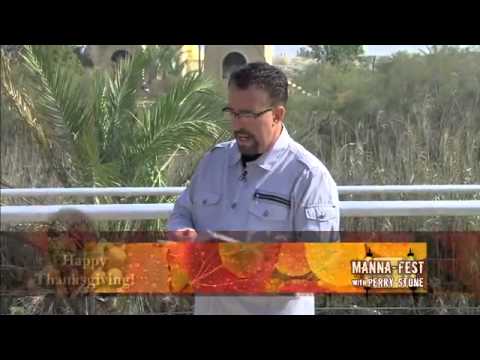
Ukraine Receiving Aid from National Churches in Poland and AGWM
Before the first missiles were launched or bullets fired, Pentecostal and evangelical churches in Poland had the divinely guided foresight to prepare supplies in advance of what seemed an inevitable Russian attack on Ukraine.
On Feb. 23 the churches in Poland began trucking food and other relief supplies out of a local church in Warsaw into Ukraine to be distributed by churches there. On March 3 they acquired a warehouse and have been sending out three semi-trucks of aid per day for the past two weeks. Most of the funds to purchase food have been contributed by other Pentecostal national churches throughout Europe.
And although it only makes up less than 2% of Poland (and similar percentages throughout Europe) the Pentecostal and evangelical Church quickly and emphatically made itself heard through its powerful response when the attack came.
According to Kirk Priest, AG World Missions area director for Central Europe, the national Church in Poland is not only leading the way in meeting the needs of tens of thousands of refugees as they flood across the border, but in fact, were initially some of the first ones at the border alongside of the Polish army when war first broke out and the refugees started pouring into the country.
Priest says that the Polish response is highlighted as 1.7 million of the estimated 2.8 million refugees from Ukraine crossed into Poland, while Slovakia, Hungary, and Romania share the majority of the other refugees.
AG World Missions has a missionary presence in Poland and other neighboring countries, supporting the national Church in its efforts to supply food, hygiene supplies, medical treatment, and shelter to refugees.
“When the war broke out, local churches in Poland immediately responded by receiving refugees, taking them in to their churches to feed, house, and minister to them,” Priest says. “So many were traumatized, running for their lives — some were wounded and needed medical care. Leaders also quickly realized they needed to get supplies into Ukraine, so they took a two-fold approach: minister to refugees fleeing from Ukraine and organize a supply chain for food, hygiene articles, and medical supplies going into Ukraine.”
Priest, who says currently they are working on establishing a new supply train from Austria and potentially Germany, explains that the Church is doing all it can to get supplies into Ukraine while the border is still open.
“Our missionaries from across Europe are also bringing in supplies, helping with logistics, and physically coming to volunteer,” Priest says. “As we consider compassion fatigue, we’re looking at working out a rotation of missionaries going in and out. However, it’s our national Church partners who are doing the bulk of the work.”
Initially local churches sent supplies by van and small truck to the church of the superintendent of the Ukrainian Pentecostal Church, Oleksandr Demianenko, in Warsaw. However, so many vehicles came that they began causing traffic problems. God provided the answer — a warehouse was opened to the church along with the use of five semi-trucks and trailers to deliver the supplies into Ukraine.
Priest explains that in Europe, Pentecostal and evangelical churches are connected through the AVC (Aktion Verfolgte Christian — Action for the Persecuted Church) network. Originally a German ministry, AVC has expanded to include humanitarian and disaster relief efforts with local chapters throughout Europe. Funds have poured into the local AVCs from throughout Europe, which then go to directly aid in the refugee crisis.
One area that God has divinely opened to AGWM missionary efforts and MAPS building teams is the Roma (often referred to as Gypsies) Church. Just within the past several decades, the Pentecostal Roma Church was established (and oftentimes literally built) through AGWM missionary efforts in Eastern Europe, including Slovakia and Hungary. These relatively new churches, however, have demonstrated amazing compassion and generosity to refugees, including being some of the few ministering to the needs of Roma refugees.
“In much of Europe, the Roma are considered dirty — the dregs of society,” Priest explains. “Often they are not extended the same services by secular organizations; for example, bus drivers have refused to pick up Roma refugees — who are mostly women and children — at the border.”
Currently, Priest says that Roma churches in Slovakia have cared for the needs of 700 Roma refugees while the Hungarian Pentecostal church averages feeding 200 Roma refugees a day at one of the border checkpoints. “They have the biggest hearts,” says Priest of the Roma churches. “They’re also responding and on the frontlines.”
Convoy of Hope is also present in Warsaw, recently having secured a warehouse for staging assistance, recognizing the ministry to refugees will be ongoing for months to come.
The ministry to the needs of the Ukrainian refugees is making an obvious impact upon refugees’ lives. However, refugees are not the only ones being touched by the compassion of Pentecostal and evangelical churches.
“In Slovakia, one of our missionaries told me she has been witnessing to her secular Slovakian hairstylist for quite some time, but she didn’t seem to be making much headway,” Priest says. “However, when she told her about how the Roma Christians were responding, her hairstylist was amazed how the love of Christ motivated people — for the first time, this woman showed interest in the gospel . . . the church is impacting and leaving a witness to the secular world all around them!”
Priest adds that Light for the Lost (LFTL) will soon be adding to the national churches’ and missionaries’ abilities to share the gospel. As almost all Ukrainian Bibles and materials are stuck in Ukraine, LFTL has placed an order for 50,000 Ukrainian New Testaments and 150,000 tracts — slated to be delivered next week to begin distribution.
In recalling how the superintendent of the Polish Pentecostal Church, Marek Kaminski, told AGWM Executive Director Greg Mundis at the start of the war that, “This is the moment for the Church in Eastern Europe to arise,” Priest is more than a little encouraged.
“The Church is fulfilling that call 110%,” Priest states. “People are giving of their time and resources in miraculous ways to the glory of God!”
To support the ongoing relief efforts of these national churches, AGWM missionaries, and Convoy of Hope, click here.











Leave a Reply